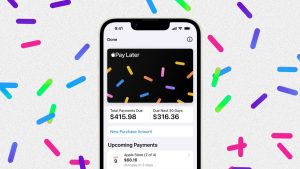It seems that every generation is misunderstood at some point in time, but few have received the massive amounts of negative attention that millennials have.
Adjectives most often applied to the group born between 1981 and 1997 (today’s 18-34 year olds)? Spoiled. Entitled. Lazy.
But like most stereotypes, they really aren’t fair or accurate.
If marketers want to reach millennials they first need to understand them. That means looking past the generalizations to understand what makes them tick, then using that insight to create a connection.
Millennials are not easily fooled by marketing and advertising tactics, and the development of an authentic relationship is vital. Which is why we rounded up these 20 best tips for connecting with millennials.

Take time to figure out your unique millennial target audience.
1. “Millennials are not a homogenous group. Many marketers make the mistake of developing Millennial stereotypes. In reality, Millennials are diverse. You can’t expect to target them and come away with a streamlined strategy. Such a strategy is, in effect, not a strategy at all. Your marketing net is too wide. The antidote is social listening. Social listening allows you to understand the nuances of your particular Millennial audience as distinct from the Millennial generation as a whole.” – Neil Patel for Inc.
2. “Adult life isn’t linear for millennials, and advertisers have to adjust accordingly. Instead of focusing on life stages, target millennials based on social groups. For example, you can focus your attention on population segments that are drawn to social causes, those who are in alternative lifestyles or those who avidly follow specific social media personalities. Millennials are much more likely to have a strong attachment to these social identities than they are to strongly identify with a specific stage of life.“ – Sujan Patel for Entrepreneur
3. “We’ve narrowed it down to three key strategies that brands should keep in mind when engaging Millennials. First, understand and speak to the values that drive them – happiness, passion, diversity, sharing and discovery. Second, understand their realistic lifestyles and experiences and find ways to amplify their reality. And, finally, make sure they feel informed and involved, not just marketed to. By following these three strategies, brands will find more opportunities available to them to gain this generation’s affinity.” – Katie Elfering, as quoted by Patrick Spenner for Forbes
4. “Marketers get frustrated with this generation because they don’t understand them and have to work harder to reach them. Move away from misguided stereotypes. Millennials are not lazy and inattentive; in fact, often they’re trying to be attentive to too many things at once. When you understand the differences you will be delighted by these brand-loyal, conscious, and engaged consumers.” – Marla Tabaka for Inc.
Tailor strategies and tactics to their wants and needs, not yours.
5. “Keep it short. Despite the value of long-form content, 41% of millennials said the main reason they abandon content is that it’s too long. Keep the context of your content in mind – are they on a mobile device looking for a quick distraction or researching for real, in-depth information?” – Amber van Natten for News Cred
6. “Millennials want to feel connected and involved when it comes to their purchases, and traditional marketing does not encourage this. Outbound marketing methods, like magazine ads, direct mail campaigns, and radio spots, do not impress Millennials. In the mind of a young consumer, these campaigns are impersonal and company-focused, filled with logos and void of any real substance. This generation demands more customer-driven, personalized marketing.” – Meaghan Moraes for HubSpot
7. “If you aren’t thinking mobile first to reach millennials, you won’t be successful. This group is spending more time on their mobile devices than any other platform and are making their decisions utilizing their mobile devices.” – Andrew Howlett as quoted by Young Entrepreneur Council for HubSpot
8. “Having a solid “event strategy” lets you appeal to millennials’ need for spontaneous, unique experiences and their desire to look good in front of their peers. Branded VIP parties, exclusive sneak peeks and selective, influencer-only events are all great ways to make millennials feel like trendsetters among the crowd, and also appeal to their sense of adventure.” – Christie Garton for Forbes
9. “Marketing with millennials does not mean paying celebrities. In our recent SocialChorus Millennials as Advocates survey, celebrities were trusted by only 7% of millennials as a credible source of product information. It also doesn’t mean paying Millennials. What it does mean is that brands need to find creative ways to appeal to Millennials and empower them to share the brand’s story. Turning a millennial consumer into a brand advocate opens up the opportunity to create a lifelong customer.” – Greg Shove as quoted by Patrick Coffee for AdWeek
10. “[…]Millennials want to be immersed in high-quality, entertaining content—72 percent even said they “tend to find themselves lost in a vortex of entertainment.” That may sound like the makings of a horror movie, but it actually means that there are plenty of opportunities to put quality, engaging content in front of millennials […]” – Gabe Rosenberg for Contently
11. “Who knows how to appeal and reach Millennials better than Millennials? Employees are your greatest assets. Young talent can help you understand the Millennial viewpoint. Invite them into the strategic process and use them as a sounding board for your marketing ideas.” – Drew Beechler for ExactTarget
12. “No one wants to be told what to do, what to like and what to think. That is especially true of Millennials, who have an instant aversion to anything that smacks of ‘marketing’. They want to believe that they have uniquely discovered the things they like.” – Millennial Marketing
Encourage them to talk about you.
13. “Millennials define themselves by the products they use, the beer they drink and the glasses they wear. And, most importantly, they love to talk about those products. When millennials fall in love with a product or an organization, they tell the world — through social media and face-to-face conversations. The millennials who love your product are your best marketing tool. These evangelists will sell your product for you if you give them a forum and the means to do so.” – Joel Kaplan for Mashable
Give them an active role in the relationship with your brand.
14. “Perhaps because they came of age in a time of economic and social uncertainty, Millennials value transparency. They tend to distrust businesses that don’t respond to feedback, or companies that are secretive about their activities. To gain Millennials’ trust, make sure you engage them on social media and share company news. Millennials value being heard and consider companies that communicate openly more trustworthy, so gain their confidence by engaging with them directly.” – Dave Hawley for MarketingProfs
15. “Millennials tend to be more receptive to brands that make them feel like they are a part of the process. They like being in the loop and appreciate being partners, co-curators and co-creators, not mere spectators.” – Tanya Dua for Digiday
16. “This may come as no surprise, but as the first generation that had social media as children and young adults, Millennials are a social set. They grew up connected not only to individuals in their schools and communities, but with connections across the country and, indeed around the world. As a result, Millennials value relationships and connectedness, not only with people but also with brands. They want to feel a real connection with the companies they buy from.” – Lindsay Tjepkema for Business2Community
Be honest, upfront and transparent, even if that scares you.
17. “Millennials grew up in a connected world. They know the difference between quality content and marketing promotion. If you want to break through and attract their attention, you must deliver the information they actively seek and be ready to help them when they want you to.” – Heidi Cohen
18. “As trust is so important to millennials, brands should make it a point to practice greater transparency in their marketing efforts. Showing consumers how the data collected on them is being handled and using it to offer them more, will lead to brand loyalty in the long run. Making the data exchange mutual for both parties involved can be a critical step. When collecting and using customer data, give customers something beneficial in exchange, like a significant discount offer on a future purchase.” – Kimberly Whitler for Forbes
A warm, human touch wins.
19. “Although occasionally misrepresented as self-centered, millennials are actually a civic-minded and group-oriented generation. Many millennials are understandably cynical about companies and institutions, having come of age during a period of social, political, and economic turmoil. They tend not to believe traditional advertising claims. But they do believe in the power of working together to effect change, and millennials are more likely to associate with brands that reflect such personal values. For those reasons, companies that operate sustainably, or show serious commitment to giving back to the community, tend to attract millennials’ support.” – Hernan Vicuna for MarketingProfs
Remember that you are not “on fleek.”
20. “Too often we see brands attempting to be cool by using slang or clever hashtags and failing to get a grasp on what is really driving culture trends. Not to mention, the speed at which these trends change is almost too fast to keep up with. The goal is to know where to place your bets and understanding where you fit naturally. This stems from building a strong brand authority that will guide the direction of your voice, messages and cultural impact. If you try and participate in a conversation that you have no business being a part of, millennials will not be afraid to call you out on it.” – Leah Swartz for Millennial Marketing
Business & Finance Articles on Business 2 Community(178)
Report Post








